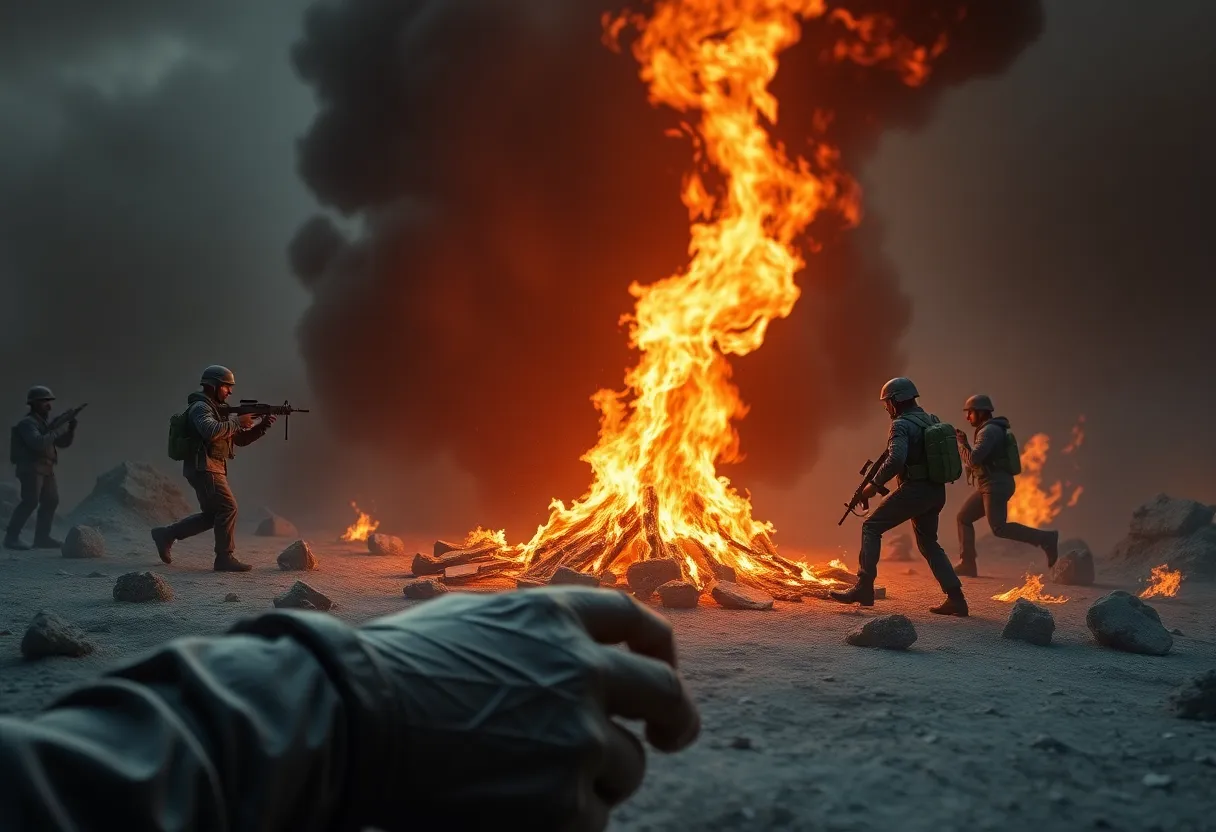News Summary
A fragile ceasefire has been established between Israel and Iran following U.S. military strikes on Iranian nuclear facilities. Reports indicate the strikes may have only delayed Iran’s nuclear program. While both nations have pledged to honor the ceasefire, ongoing tensions remain, with accusations and conflicting intelligence reports complicating the situation. As the crisis evolves, there are discussions about potential negotiations regarding Iran’s nuclear capabilities, amidst rising global markets reacting to the ceasefire agreement.
Fragile Ceasefire Holds Between Israel and Iran Amid Controversial U.S. Strikes on Nuclear Sites
Strikes and Their Impact
In a dramatic turn of events, a fragile ceasefire has been established between Israel and Iran following a series of intense military engagements. This ceasefire comes on the heels of recent U.S. military strikes targeting Iranian nuclear facilities, with officials evaluating the true extent of the damage caused. While leaders have declared victory, initial assessments suggest that the strikes may not have achieved their intended goal of completely eradicating Iran’s nuclear capabilities. Some experts believe that the strikes only delayed the Iranian nuclear program by a matter of months.
Conflicting Reports
The Pentagon’s intelligence report raises crucial questions about the effectiveness of the military action, revealing that critical components of Iran’s nuclear program, such as centrifuges, could be operational again in just months. Furthermore, there are claims that a sizable portion of Iran’s stockpile of highly enriched uranium was moved before the strikes, possibly to undisclosed sites, rendering the U.S. action less effective than initially believed. In contrast, authorities in Washington promptly dismissed this intelligence as “flat-out wrong,” underscoring the contentious debate surrounding the military campaign’s success.
An End to Hostilities – For Now
As the dust settles, Israel and Iran announced a ceasefire after a 12-day conflict that saw Israel targeting Iranian military installations. The ceasefire agreement relies heavily on mutual compliance, with both countries pledging to honor it as long as the other does the same. Throughout the conflict, incidents of missile launches were reported, with Israel accusing Iran of aggression, although Iran has asserted no such missile activity occurred since the agreement began.
Market Reactions and Political Tensions
The announcement of this ceasefire has sent ripples through global markets, with oil prices climbing as concerns about a potential Iranian blockade of the crucial Strait of Hormuz surfaced. Optimism around the ceasefire led to global stock markets hitting record highs, a stark contrast to the heightened tensions prior to the agreement. However, President Trump expressed frustration over ongoing violations of the ceasefire, pointing to a troubling level of uncertainty and mismanagement on both sides.
Commemorating Losses
In a poignant development, Iran’s leadership announced state funerals for military personnel and scientists who lost their lives during the conflict. This recognition serves as a reminder of the serious human cost associated with the hostilities. Alongside these commemorations, Iran executed three individuals convicted of espionage, which adds another layer of complexity to an already intricate regional conflict.
Future Negotiations and Military Strategies
As both nations navigate this uncertain landscape, the possibility of renewed negotiations concerning Iran’s nuclear program is slowly emerging. Officials from both sides have indicated a willingness to return to the negotiating table, potentially opening doors for dialogue moving forward. This comes as U.S. military leaders stress the importance of thorough assessments regarding the damage to Iranian nuclear facilities and their future capabilities.
Conclusion
As Israel and Iran grapple with the aftermath of the strikes and the delicate ceasefire, the situation remains highly fluid. Continued exchanges between the two countries have occurred even during the ceasefire, complicating efforts to maintain peace. Lawmakers back home are clamoring for clarity on U.S. military actions, which have drawn both support and criticism, echoing divisions within Congress on the administration’s military strategy. For now, everyone watches closely as the world hopes this fragile ceasefire can evolve into something much more enduring.
Deeper Dive: News & Info About This Topic
- BBC News Live
- Reuters
- NBC News Live Blog
- Al Jazeera Live Blog
- The Guardian
- Wikipedia: Israel
- Google Search: Israel Iran conflict
- Google Scholar: Iran nuclear program
- Encyclopedia Britannica: Middle East conflict
- Google News: Israel Iran 2025

Author: STAFF HERE FLORENCE WRITER
The FLORENCE STAFF WRITER represents the experienced team at HEREFlorence.com, your go-to source for actionable local news and information in Florence, Florence County, and beyond. Specializing in "news you can use," we cover essential topics like product reviews for personal and business needs, local business directories, politics, real estate trends, neighborhood insights, and state news affecting the area—with deep expertise drawn from years of dedicated reporting and strong community input, including local press releases and business updates. We deliver top reporting on high-value events such as the Florence Festival of Lights, Pee Dee Pride, and agricultural expos at the Florence Center. Our coverage extends to key organizations like the Florence Regional Chamber of Commerce and the Pee Dee Area Council of Governments, plus leading businesses in healthcare and retail that power the local economy such as McLeod Health and Pee Dee Electric Cooperative. As part of the broader HERE network, including HERECharleston.com, HEREColumbia.com, HEREGreenville.com, and HEREHiltonHead.com, we provide comprehensive, credible insights into South Carolina's dynamic landscape.





